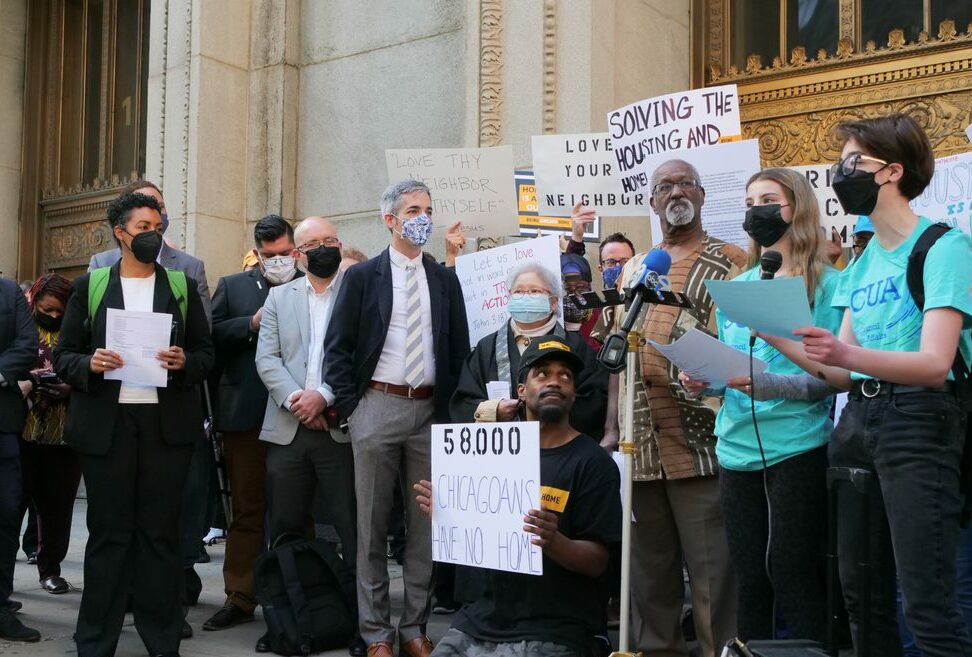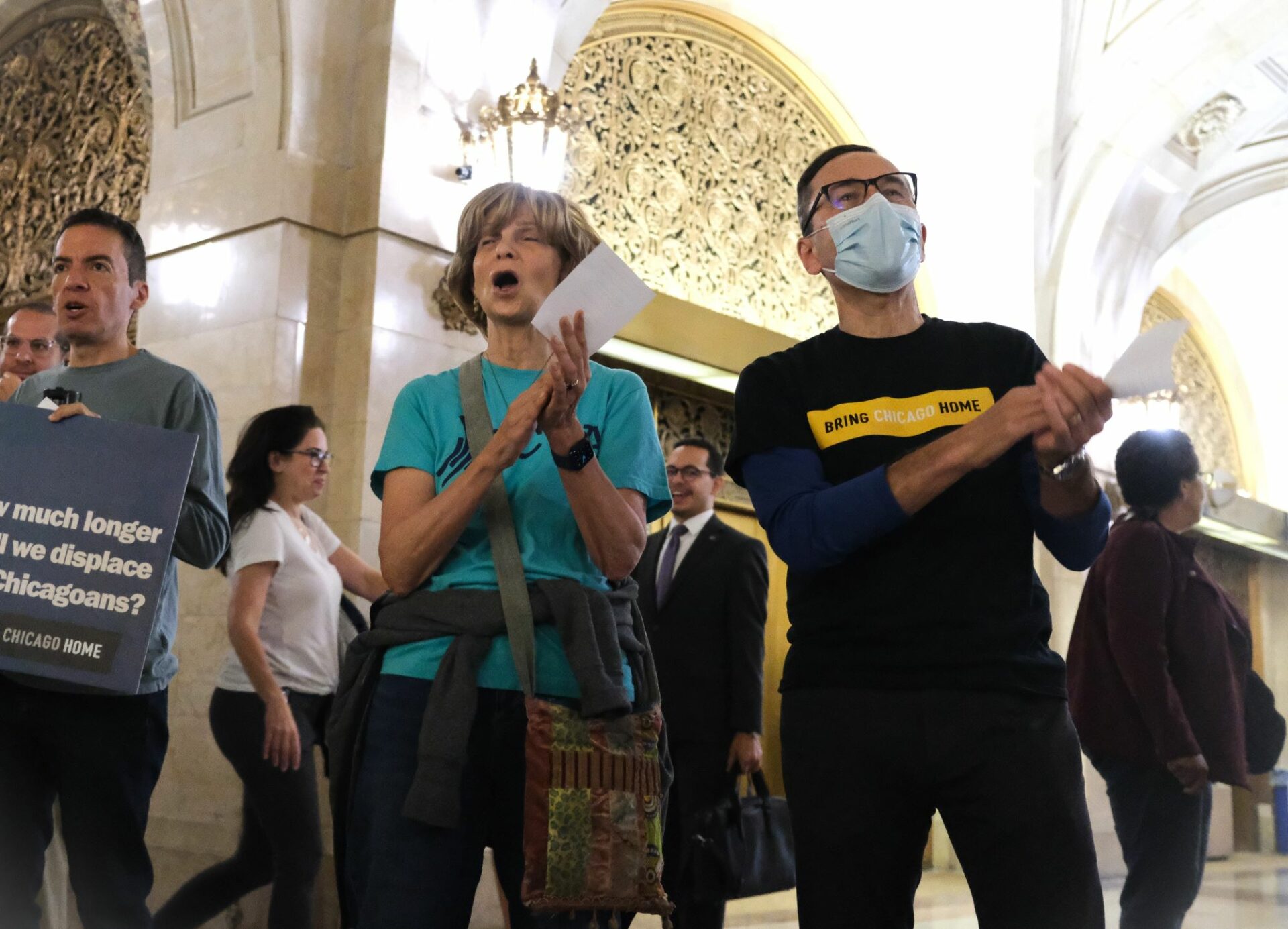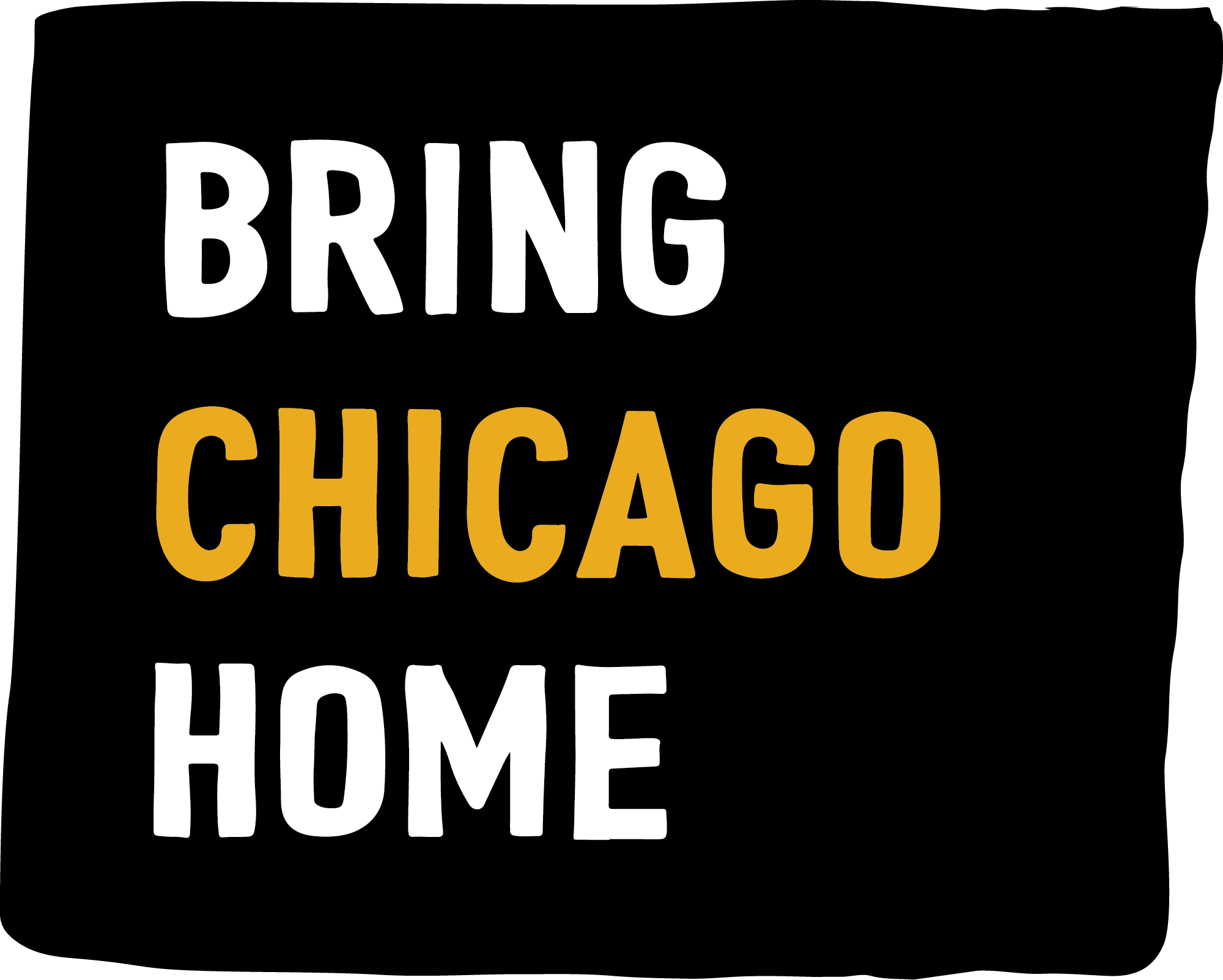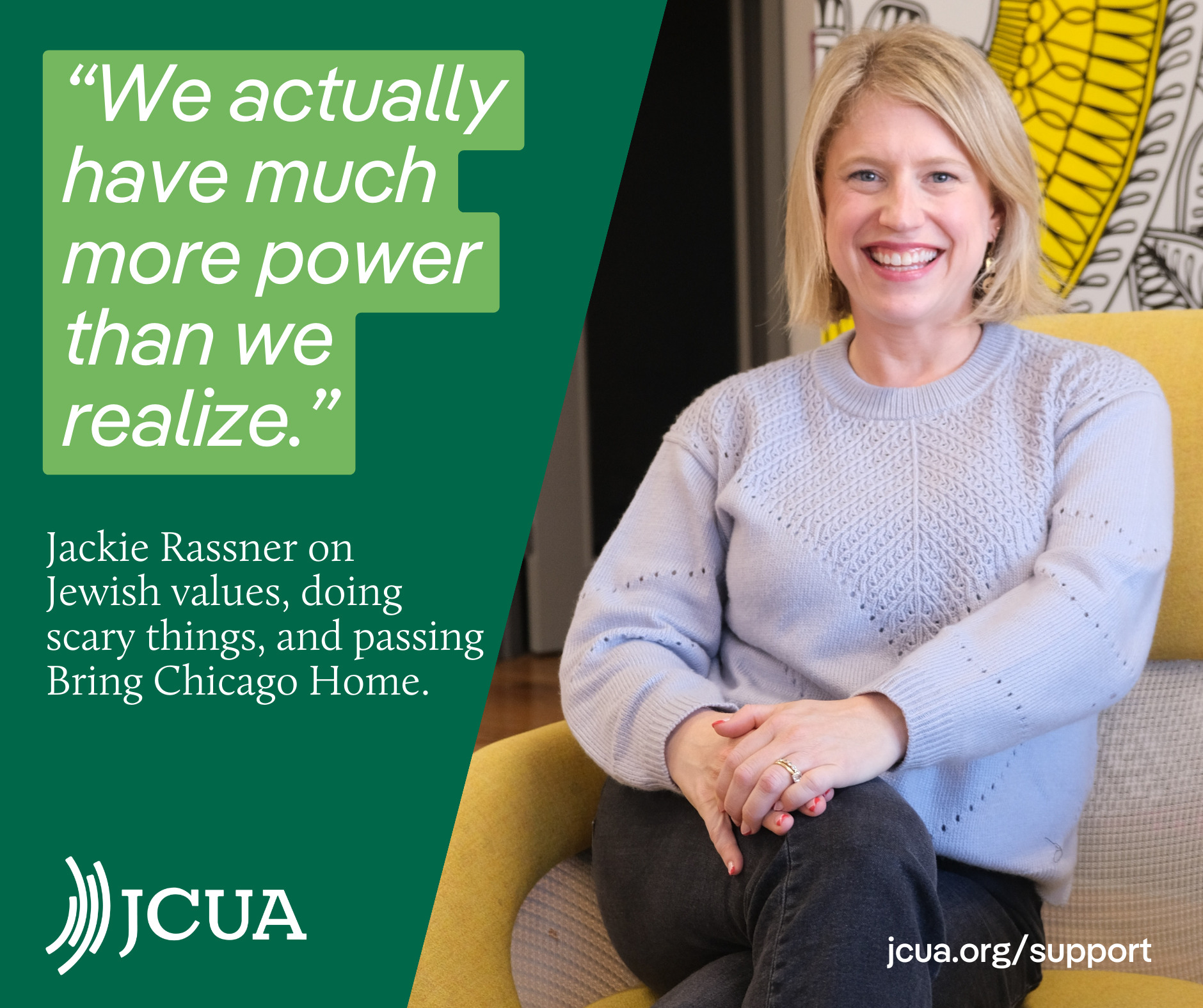Dalya Lessem Elnecave on Bring Chicago Home
On Sunday, March 12, I had the honor of standing before and speaking to the Bring Chicago Home coalition for the second time. At our People’s Hearing, I was playing the part of a “Mayor of Chicago for the Many.” In November, outgoing mayor Lightfoot managed to stop us from having a city council hearing to get Bring Chicago Home, a campaign to provide 160 million dollars of funding for housing justice annually, on the ballot in the Chicago municipal election. So we had a People’s Hearing, a way for us to share our voices and testimonies and anger together, to remind us why we are in this fight, and to ready us for more action as the spring progresses. It was a powerful and exciting event: we had a mayor (me!), we had testimony-sharing, art making, story-sharing, policy learning, a people’s vote on Bring Chicago Home, and a celebration of our incredible coalition that we have built together.
This event was especially meaningful to me because this month marks the anniversary of the beginning of my involvement in the Bring Chicago Home campaign. Last year, our youth organizing caucus chose Bring Chicago Home as our campaign to focus on, meaning that myself and other JCUA youth had an accessible pathway to involvement in a wider JCUA campaign. This time last year I was learning about the ins and outs of Housing Policy, the research behind Permanent Supportive Housing as a solution for homelessness, and the political workings of the Chicago municipal legislative process.
From there, my fellow youth and I began organizing around Bring Chicago Home. Our organizing took many forms including drafting a letter to send to partner clergy members requesting they publicly share their support for BCH, creating social media graphics to use in getting the word out, and planning a teen teach-in to educate our peers on the campaign. Our involvement culminated in May when my fellow youth organizer Mollie Gross and I spoke at the Interfaith Rally for Bring Chicago Home where we were joined by much of the JCUA youth caucus. This felt a little intimidating for me; I still felt new to the BCH coalition and was intimidated by many of the experienced alders and elected officials we were working in coalition with.

The next week I delivered a D’Var Torah on BCH at my synagogue, Anshe Emet. This was one of the first times I had spoken about BCH as the so-called “expert” educating those who were not as aware of the intricacies of Chicago homelessness policy. This was also intimidating. Although I was speaking to friends and community members I still felt out of my depth in this role and relied on the support of Jimmy Rothschild and Joe Grant. Was I really qualified to be presenting on this campaign?
Over the following summer I went to more and more BCH events. I led and participated in canvasses and demonstrations and helped to plan the JCUA Tisha B’Av BCH event where I led the text study. I still felt largely out of my depth in each new situation I was put into, but I had begun to recognize a pattern: for every insecurity and every doubt I had, there was an affirmation from a fellow organizer, there was someone to look to for help and support. Even though I did not feel entirely confident in my own capacity as an organizer, I felt more assured that I had the support that I needed to feel comfortable and powerful in BCH spaces.
With the beginning of the fall I became the youth liaison for the Housing and Economic Justice Committee with the goal of continuing to bring more youth into the work on Bring Chicago Home. Over the fall I dutifully reported to the Youth Organizing Caucus some of the many triumphs and setbacks of the campaign, culminating in our under-attended hearing and action for the reintroduction of Bring Chicago Home. I felt able and confident that I would be able to bring more youth into the BCH fold, and that I would be able to provide them with some of the support that many of my incredible BCH mentors had given me.
And so we reached the People’s Hearing attended by the most JCUA youth since the Interfaith rally. I still felt out of my depth in my role as mayor/MC, but, despite the huge number of electeds, candidates, and incredible community leaders who had joined us, I had the full confidence that I belonged in this space and that everyone was ready and excited to support me and cheer me on. The Hearing was incredible (especially because of the work of incredible JCUA leaders Max Davis and Sam Rose). When I called out JCUA’s name during the roll call portion, the response was beyond powerful. And I think that that is the perfect way to sum up my whole experience with BCH. We are a beyond powerful coalition. JCUA is a beyond powerful organization. The work that the youth of JCUA do is beyond powerful.
We are only able to accomplish what we do because of the people we work with. More than ever I rely on my fellow organizers and allies. But I hope I have reached a point with BCH where I am someone that other people can rely on as well. I can’t wait to support the next JCUA Youth Mayor whomever they turn out to be.




